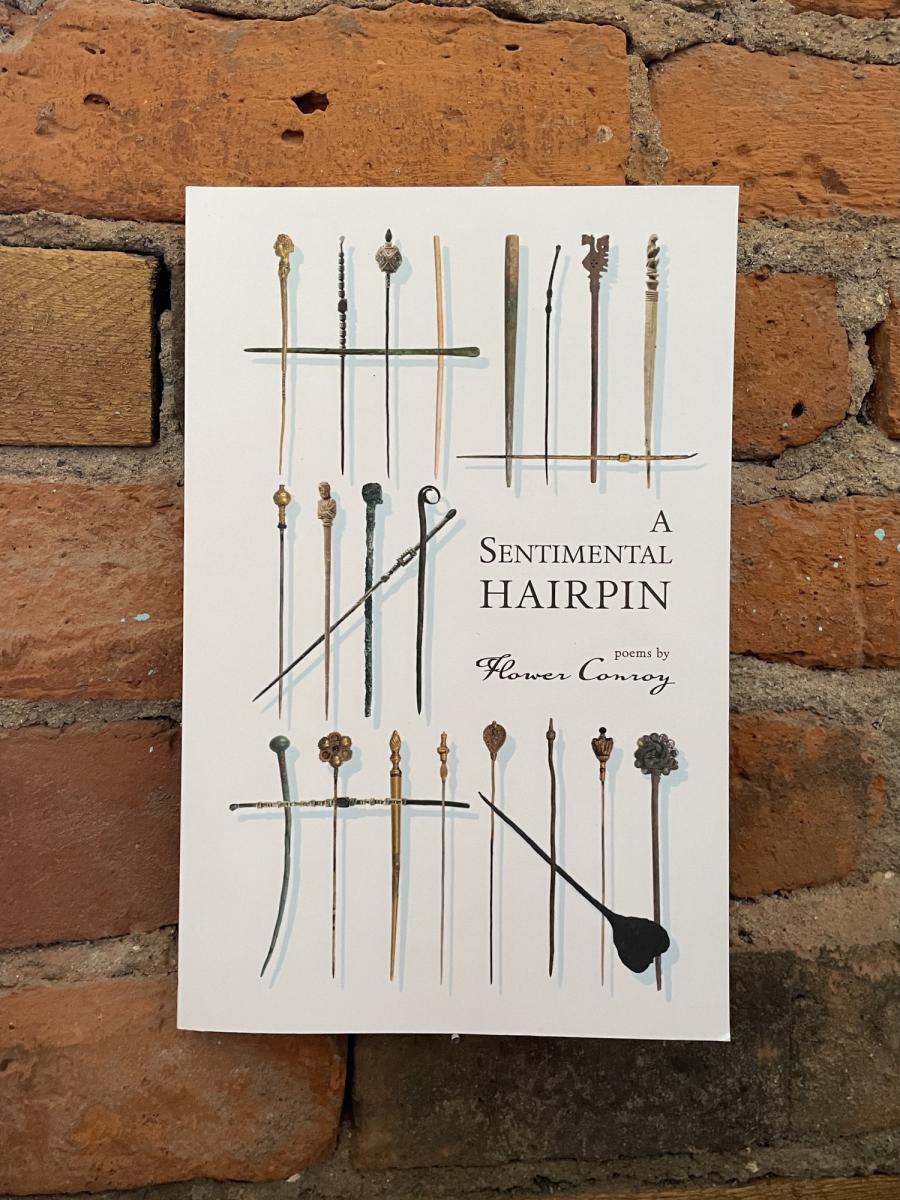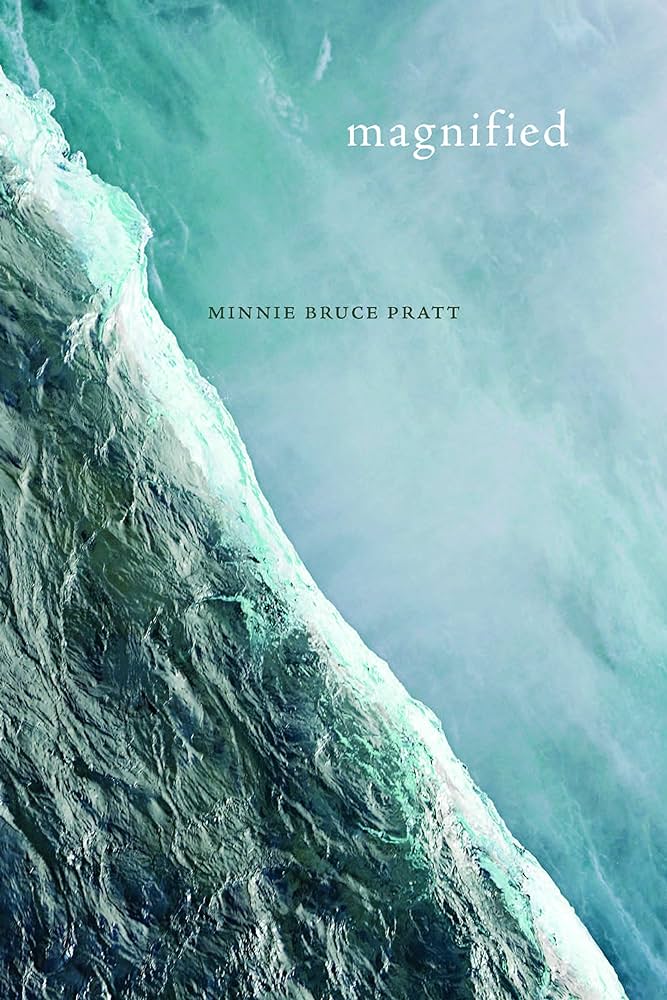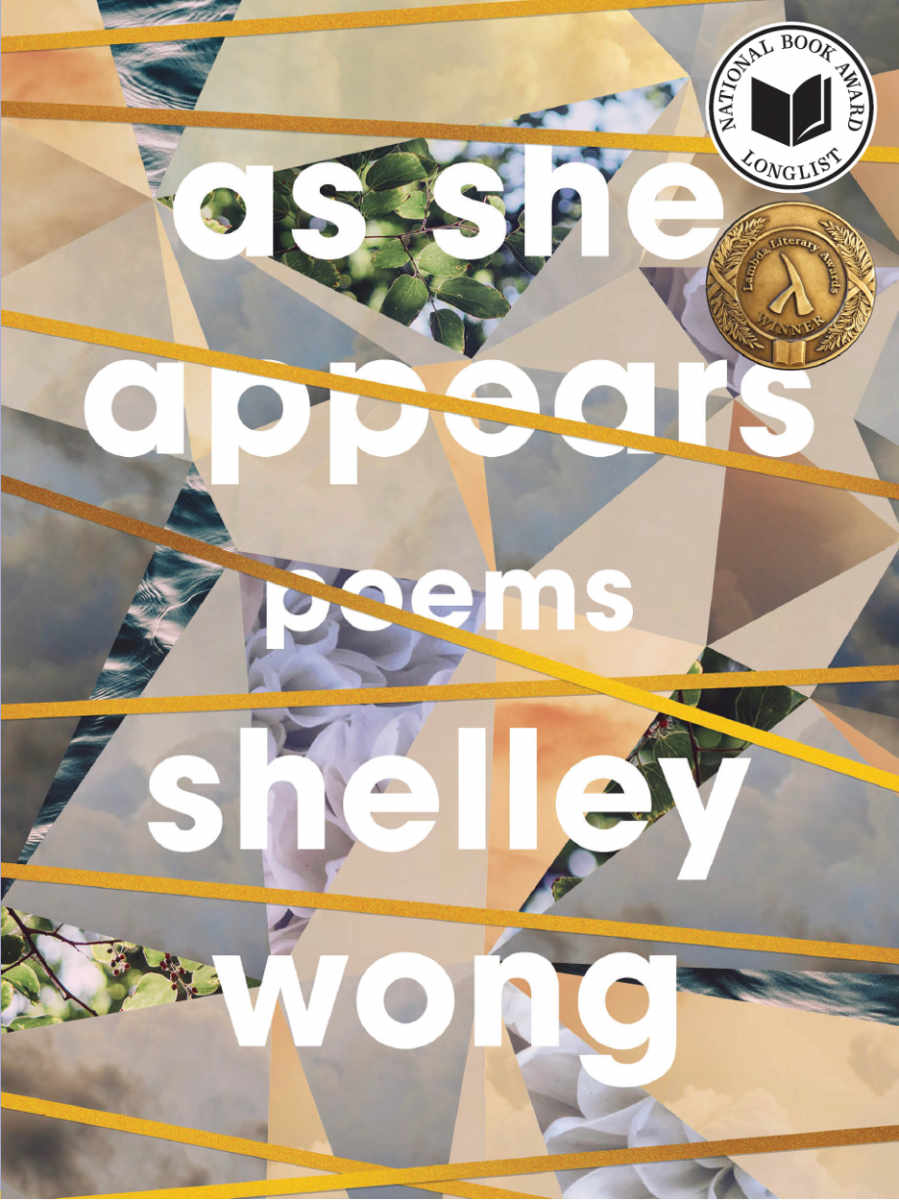This summer, like every summer, I vow to read more. Luckily, there is an abundance of queer poetry out there! There are so many new and forthcoming books that I can’t wait to get my hands on, but until then, I’m turning to the queer poetry collections already stocking my shelves.
I’m drawn to queer voices writing the natural world and poets who play with voice and form. I love project books that take on one story or theme, and collections that spiral outward in mad encompassment. The list below is a small sampling of my top bookshelf, the one I turn to when I’m deepest in my feelings, which has happened a lot in 2024. It is June. We are halfwaythrough the year, and yet it has already held the intensity of at least a half-decade. There are good feelings in there, too, along with the rawness and exhaustion. The collections gathered here know this hybridity of emotion. They are full of loss, anxiety, love, and finding a way forward, despite.
~~~
They Call Me She by Belle Adelman-Cannon

After a tragic accident, these poems were found on teenager Belle Adelman-Cannon’s phone. Belle attended International School of Louisiana, Benjamin Franklin High School, and the pre-professional program at the New Orleans Ballet Association. Their spiritual cornerstones were queer identity, Judaism, and their beloved Marigny neighborhood, all of which are present in these stunning poems. The poems collected here are dichotomous: sad and triumphant, outgoing and self-reflective, open and closed. They are moody and powerful and true, as charismatic as Belle was in life. Belle’s many devoted friends performed selections of their poetry at a poignant book launch in June 2024, breathing life into these achingly beautiful verses. They Call Me She is their first and only publication.
A Sentimental Hairpin by Flower Conroy

Flower Conroy is such a powerhouse of poetry. I believe this is the widely-published Conroy’s fifth book, and, like all her work, it is bold and unapologetic. A Sentimental Hairpin is an archive of language and art. The poems in here take on many shapes and forms, from erasures to concrete poems: these are the lyrics of desire. United by their intensity, these poems take on as many voices as they do forms: the dead speak, as does Lady Godiva’s glove. “Tell me,” Conroy asks in “Doppler,” “if one / can’t prove God’s existence how does one prove God’s intentional?” These poems are proof of a real existence, a life lived through curiosity and observation.
The Complete Works of Pat Parker, edited by Julie Enzer, 2016

Pat Parker’s poems will always be contemporary. Her voice and poise are timelessly powerful. Parker began identifying as a lesbian in the late 1960s and soon became actively involved in the civil rights, women’s rights, and gay rights movements. She would occasionally read her poetry at events, eventually publishing five collections of poetry before her death in 1989. Parker’s poetry incorporates an exquisite eye for the details and complications of love along with a plain-spoken, intimate voice. The Complete Works of Pat Parker gathers all of Parker’s published work from two books (Movement in Black and Jonestown & Other Madness), three chapbooks (Child of Myself, Pit Stop, and Womanslaughter), other previously unpublished poems, two plays, and a handful of prose essays. It is a comprehensive collection of Parker’s works, and a book I return to again and again. “To Lynda” is still one of my top favorite poems, and I wish to be wrapped tightly in its thread always.
Short Film Starring My Beloved’s Red Bronco
by K. Iver. Milkweed Editions, 2023.

K. Iver’s Short Film Starring My Beloved’s Red Bronco is an elegiac attempt to render some sense of meaning in the aftermath of a great loss. These poems are equally raw and refined, journey and meditation. What is home? Where can we find it? These poems question place, family, and finding safety. In “New Testament,” Iver writes, “I’m trying to unwrite these grassy hills they made so dangerous.” These are poems that pull away and towards, longing for something beyond grief. “This town could be my home,” the same poem ends, “It isn’t.”
Magnified by Minnie Bruce Pratt

On July 2, 2023, we lost Minnie Bruce Pratt. Pratt leaves behind an enormous legacy of literature and activism. Pratt’s 1990 collection Crime Against Nature described her loss of custody of her children after coming out as a lesbian. Her last collection, Magnified, centers the liminal space surrounding a great death. The poetry collected here turns to daily walks and writings as a way to try to make sense of the grave illness of her beloved. “Whole. Whorled. Welkin, winkle, wrinkle,” Pratt writes in “Oh Death,” “The loop of time holds us all together.” Magnified transcends time and offers language to unspeakable loss. It is timelessly insightful, and reading this collection in the wake of Pratt’s loss both aches and soothes.
As She Appears by Shelly Wong

I first encountered Shelly Wong’s poetry in The Normal School maybe ten years ago. I long-awaited her debut collection, As She Appears, which foregrounds queer women of color in their being and becoming. In remarkably detailed yet breathing lyric, these poems consider how women inhabit and remake their environment. Wong’s verse is full of love and light. “Spring insists we can build the world,” her poem “For the Living in the New World” ends, “around us again. How has love brought you / here? My head is heavy from the crown.”
~~~
This year has also reminded me how we are all indebted to each other, and that community is key. Every book described above reminded me of another stunning collection, and so this list is followed by another list of other books I hold close. More queer books of poetry I adore include Spectral Wilderness by Oliver Baez Bendorf, We Come Elemental by Tamiko Beyer, R E D by Chase Berggrun, The Tradition by Jericho Brown, feeld by Jos Charles, Year of the Unicorn Kidz by Jason B. Crawford, Postcolonial Love Poem by Natalie Diaz, This Body / That Lightning Show by Elizabeth Gross, Pelvis with Distance by Jessica Jacobs, I Wore the Only Garden I’ve Ever Grown by Kate Leland, Nature Poem by Tommy Pico, Headless John the Baptist Hitchhiking by C.T. Salazar, The Rabbits Could Sing by Amber Flora Thomas, and Windowpanes by Elizabeth Wilson.
____________
Stacey Balkun is the author of Sweetbitter & co-editor of Fiolet & Wing. Winner of the 2019 New South Writing Contest, her work has appeared in Best New Poets, Mississippi Review, Pleiades, & several other anthologies & journals. Stacey holds an MFA from Fresno State & teaches online at The Poetry Barn and The Loft. She lives and writes in New Orleans.

